The Ripple Effect of Cancer Research Training and Education
The UArizona Cancer Center’s Office of Cancer Research Training and Education Coordination is tasked with overseeing the progress, development of aspiring cancer researchers, health professionals from pre-college through to their first faculty position.
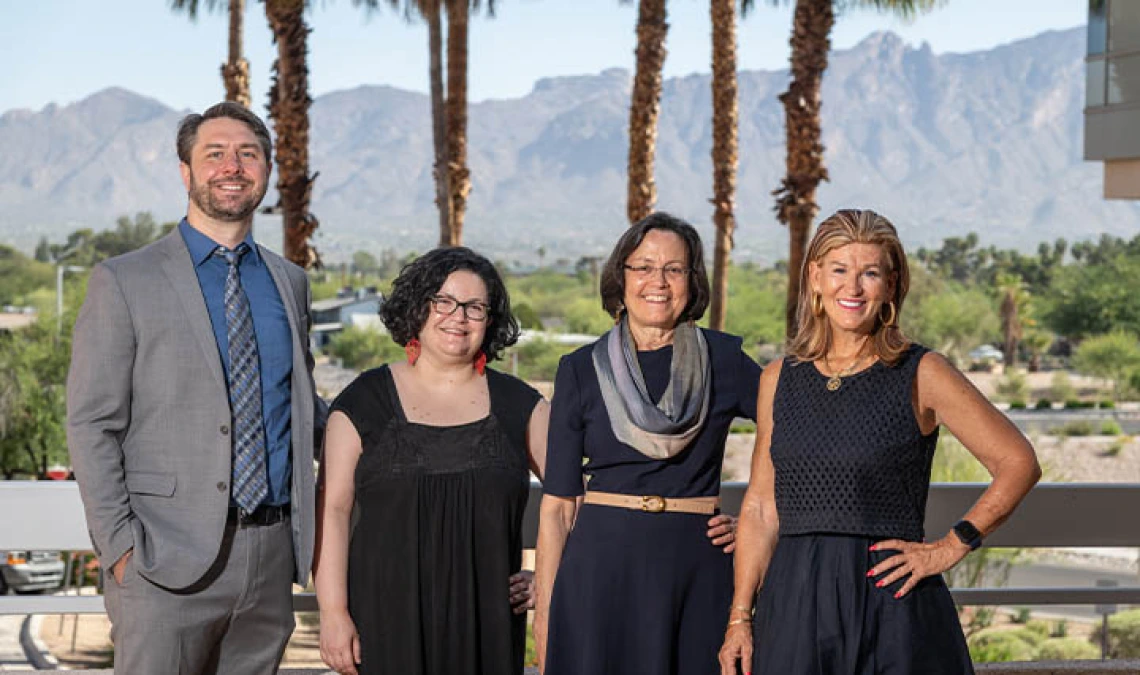
If you throw a rock into a pond, the ripples on the water will extend outward and away from the point of impact. Understanding that ripple effect is, in a way, the job description for those coordinating research training and education at the University of Arizona Cancer Center.
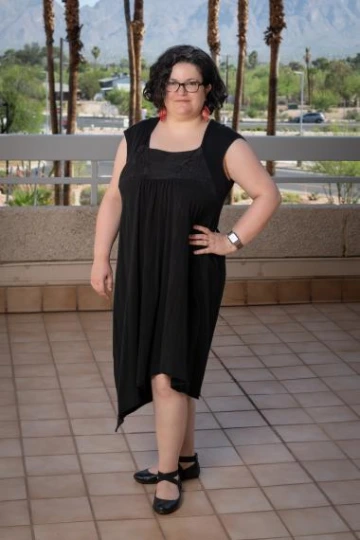
Laura Farrell-Wortman, PhD
“We're throwing rocks in the pond,” said Laura Farrell-Wortman, PhD, operations manager for Cancer Research Training and Education Coordination (CRTEC). “We are interested in seeing how the ripples connect with each other and reverberate to benefit people that we didn’t even necessarily intend to benefit.”
Implemented in 2018, CRTEC coordinates cancer-focused training and education activities across a broad continuum of trainees from pre-college all the way through becoming professional faculty. In doing so, CRTEC also coordinates cancer-focused professional development activities, and tracks and evaluates the impact of the center’s training and education activities.
Each of the coordinated activities serves as its own rock thrown into the pond that is home to the next generation of cancer researchers. The task of overseeing such research and training efforts for such a vast age range of individuals – from grade school to early faculty – is immense, but it is essential for a National Cancer Institute (NCI)-designated Comprehensive Cancer Center. No one knows this better than Margaret Briehl, PhD, the UArizona Cancer Center associate director for Cancer Research Training and Education Coordination.
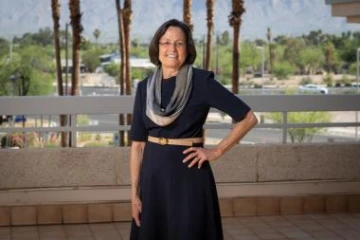
Margaret Briehl, PhD
“I see our charge as taking a comprehensive look at what we are doing for training and education, and then filling in any gaps that we may have,” Dr. Briehl said. “The attitude we’ve had from the beginning is to really improve upon the things that we could be doing better.”
Dr. Briehl took inventory of any shortcomings and quickly put a plan in place to address those issues. One of the priorities was staffing, and the Cancer Center responded with an investment to create positions supporting operations and the implementation of new cancer education initiatives.
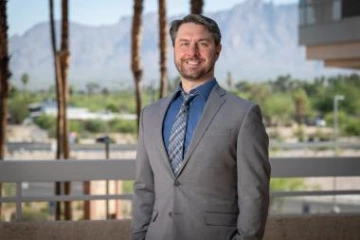
Clinton Owner
In addition to hiring Dr. Farrell-Wortman to the operations manager position last fall, Dr. Briehl welcomed Clinton Owner to a science educator position. Owner, who was previously a local high school chemistry teacher, is currently responsible for overseeing the Cancer Center’s training and education efforts for pre-college students.
“The pre-college group is really the one area that we needed the resources to improve,” Dr. Briehl said. “We have always had a great track record with our training once students are on campus, but we realized that we needed to do more to prepare students interested in cancer research before they get to college.”
Owner has implemented a number of outreach initiatives to local schools and programs, with a focus on those that may be lacking in resources. These include the Southern Arizona Research, Science and Engineering Foundation (SARSEF) and the Pima County Joint Technical Education District (JTED), which offers a number of career technical education programs.
“We want to work with and support these programs that already exist,” Owner said. “A portion of their students are already conducting cancer research at their schools with their mentors. We would like to incentivize and reward those students, and hopefully attract other students to cancer research.”
Owner is in the process of establishing a network of mentors, including graduate students and postdocs, who will serve as role models for K-12 students. He also says there is an emphasis on students from communities or racial and ethnic backgrounds that are underrepresented in academic research.
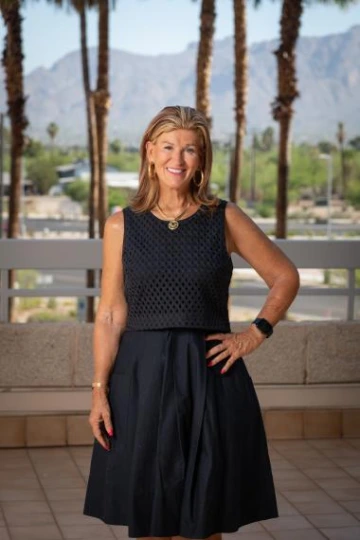
Carol Carpenter
The staff for CRTEC work closely with the Cancer Center’s Office of Community Outreach and Engagement, which is the bridge between the center and local communities. It seeks to address cancer disparities and reduce the cancer burden in underserved populations that are located within the Cancer Center’s catchment area.
“We have a very unique demographic here with our high percentage of Hispanic and Native Americans,” Dr. Briehl said. “We are also cognizant that there are educational disparities within our diverse communities. It is imperative that we can engage those students and excite them and encourage them to pursue college.”
Farrell-Wortman is creating a database to track trainees throughout the career continuum that may begin with Owner’s outreach to a local school. Thus far, she has tracked over 1,400 trainees from 2016-2020. Nearly one in three of those trainees are from an underrepresented population.
“Diverse groups of people collaborating together can come up with the best solutions for our challenges,” said Joann Sweasy, PhD, the Nancy C. and Craig M. Berge Endowed Chair and Cancer Center director. “We want to train a diverse workforce and set them up for success. That is a very real emphasis in our cancer research training and education initiatives.”
The CRTEC program has also bolstered its training for graduate and postdoctoral students already on campus. CRTEC collaborated with Shelley Hawthorne Smith, PhD, in the UArizona Graduate College to implement the F-Award Readiness (FAR) program. FAR is designed to increase the number of F-Awards that the Cancer Center receives from NCI. Students seeking an MD/PhD can receive an F30 Award, while PhD candidates can receive an F31 to fund their research.
“FAR is a step-by-step way of helping students to develop their grant applications over the course of the calendar year,” Farrell-Wortman said. “It allows them to receive feedback in a relatively low-stakes environment.” Carol Carpenter, who joined the CRTEC team in May, is a professional grant writer with 30 years of experience. She now leads the FAR program along with supporting other grant writing activities.
Learning the intricacies of writing successful grants can be as important to a young researcher as understanding how to conduct the actual research. Without sufficient funding, there will be no path to carry out a research project no matter how good the idea is.
“If you don’t know how to write, if you don’t know how to be persuasive with your ideas, then you will never get funded,” Dr. Briehl said. “Skill in grant writing is extremely important.”
Trainees are also gaining other skills in event planning and presentations through CRTEC. The program is planning its first research conference day for Aug. 4. The Cancer Research: Present and Future virtual conference will target both the academic scientific research community and the general public. It is being organized by Farrell-Wortman and a committee of trainees. Presenters will include trainees at all career levels.
“There are a number of skills that trainees can learn from this conference,” Farrell-Wortman said. “One is the organizational aspect for those on the committee. But we are really encouraging students to develop their skills in speaking to lay people and translating their research to be understood by the general public.”
All of these efforts by Dr. Briehl, Dr. Farrell-Wortman, Owner, and Carpenter are just the first of many ripples that they hope the CRTEC program creates for the next generation of cancer researchers.
“We are determined to create leaders in the industry,” Owner said. “The more cohesively we coordinate our training and education, the more effective we will be as an entire cancer center.”







